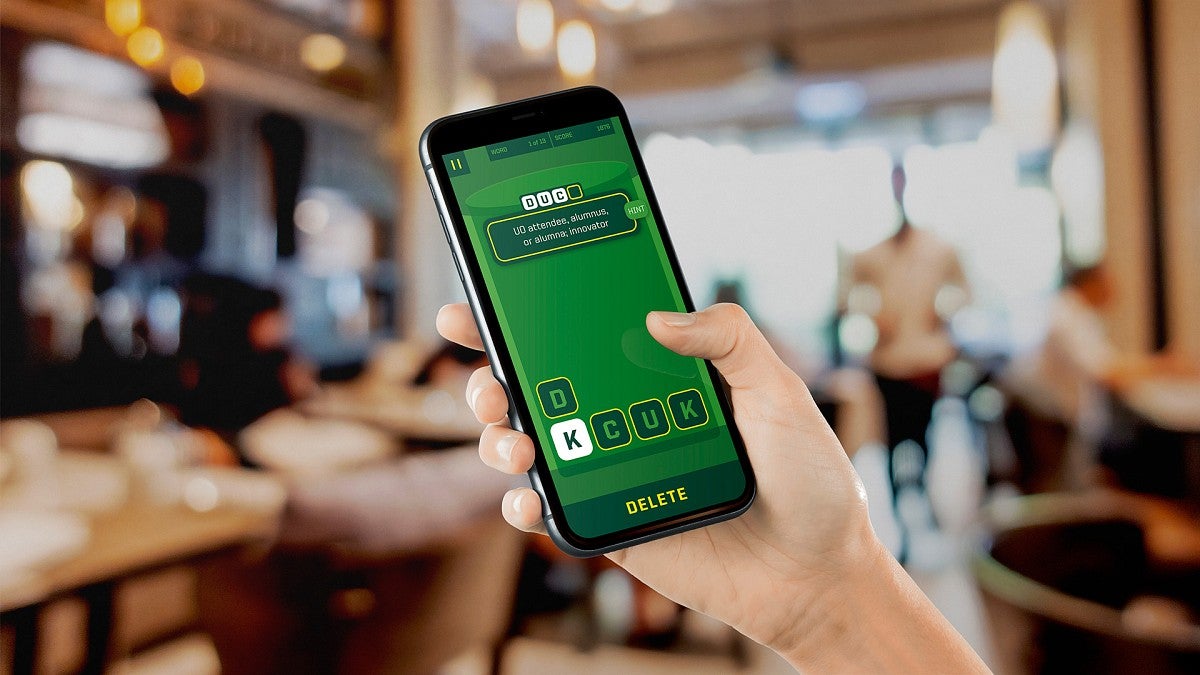Playing Wordle or Sudoku each morning over a cup of coffee probably won’t boost your brain powers, but the mood and confidence lift these games provide is reason enough to keep playing, new University of Oregon research shows.
Researchers from UO's School of Journalism and Communication investigated brain-training games, collections of puzzles and quizzes that are marketed to help sharpen the mind but lack scientific backing. According to UO psychology professor Ulrich Mayr, who signed a consensus statement from a panel of top neuroscientists in 2014, no robust evidence exists that brain-training games can improve cognitive performance.
But the games, or any games that provide a sufficient challenge, may help restore psychological well-being, even if they don’t aid cognitive health, according to a study led by Waseq Rahman, a doctoral candidate in communication and media studies.
Rahman and his colleagues, including UO assistant professor of game studies Maxwell Foxman, conducted the study by meeting the players where they were: the Google Play Store.
Their findings were published March 1 in the International Journal of Human–Computer Interaction.
While prior research used experiments to test if such brain games could objectively improve cognition, the new study focused on the players' subjective impressions gathered in reviews for the most popular brain-training apps.
“This really allowed us to get the raw consumer perspective and see if the people that are actually playing the games find them effective,” Foxman said. “It also provided a real diversity of stories, from veterans talking about retraining their brains after trauma to elderly people trying to exercise their brains in addition to their bodies. We could have done interviews instead, but having this dataset gave us access to a large repository of all those different stories.”
The researchers sifted through thousands of user reviews for brain-training apps Lumosity, Elevate and Peak. With the help of their collaborator, David Markowitz of Michigan State University, they used an automated text analysis program and a qualitative thematic analysis to evaluate and gauge users’ opinions and feelings towards the games.
The researchers were not surprised that there was a lack of consensus on the apps’ proposed cognitive benefits among users. Yet they were intrigued to see many reviews in which players said they appreciated the entertaining, challenging and progress-tracking aspects of the gameplay. Many reviewers noted feeling better and gaining confidence after playing, even if they weren’t sure if they had gained anything cognitively.
“Our findings show that not only are people getting better at these games, but they also enjoy getting better,” Foxman said. “This might be why people play Wordle or Sudoku every day. Enjoyment is a powerful personal force, economic force and cultural force that should be given more significant attention.”
Games can tap into people’s intrinsic psychological needs, Rahman said. Regular challenges can stimulate and build an enduring sense of confidence and autonomy over one’s self and identity, and games are good at delivering such an experience, he said.
Rahman cautions that although media entertainment can help restore vitality and well-being, it's not permanent.
“That's why you play tennis over and over again, for example,” he said. “You don't play tennis once, feel competent and then you're good to go. This kind of interactive entertainment helps you feel a sense of control, autonomy and enjoyment from achieving mastery over challenges. But whether and how this may lead to enduring impressions of our sense of self requires extensive research.”
The research doesn’t prove brain-training games, or games in general, are effective as therapeutic interventions, the researchers warn. But even if the science doesn’t support brain games as cognitive boosters, Rahman said the “exercising jolt” and sense of personal achievement people get from playing games warrants further investigation into how those activities can meet individual needs for recovery and well-being.
“When it comes to cognitive and mental health, the one thing we can do is be open to learning new and meaningful things,” Rahman said. “And I think what games do well is provide you with a framework on how to learn and challenge yourself in ways that you can enjoy.”
— By Leila Okahata, University Communications


